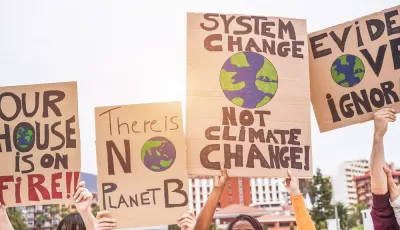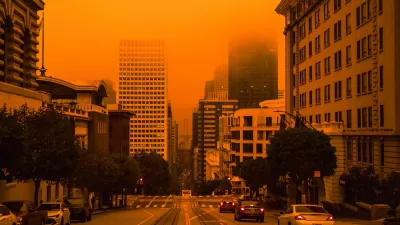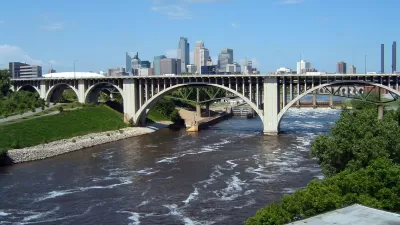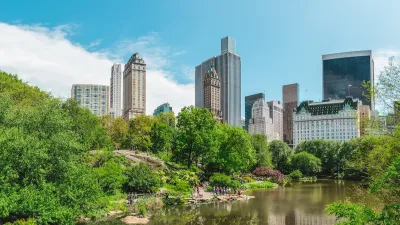Almost all U.S. mayors have some level of concern about climate change in their communities, but local leaders face some challenges in taking action.

A new report from the Boston University Initiative on Cities indicates that most U.S. mayors are concerned about the impacts of climate change on their communities. As Michael Brady writes in Smart Cities Dive, 97 percent of mayors surveyed said climate change was a concern, while over half worry about drought, extreme heat, flooding, and air pollution. Notably, “There was no partisan gap among mayors.”
According to the report, “Mayors said their regulatory powers, especially building codes and zoning, are their most effective tools to address climate change.” Cities are also focusing on replacing municipal fleets with electric vehicles in an effort to reduce emissions in the transportation sector. Per the survey, 74 percent “of mayors support replacing their city’s municipal vehicles before their natural lifecycle ends, which suggests a major opportunity to capitalize on new federal funds for things like electric school buses, fire trucks, and public works vehicles.”
However, “Local climate action can be costly and complicated, and it has to compete with all of the other challenges mayors are facing.” Brady explains, “Major concerns for mayors include the current costs and environmental effects of energy supplies.” Some are also concerned about the political fallout of unpopular decisions, seeking solutions with the fewest hard tradeoffs for their constituents.
FULL STORY: Nearly all US mayors worry about climate change’s local effects: report

Alabama: Trump Terminates Settlements for Black Communities Harmed By Raw Sewage
Trump deemed the landmark civil rights agreement “illegal DEI and environmental justice policy.”

Planetizen Federal Action Tracker
A weekly monitor of how Trump’s orders and actions are impacting planners and planning in America.

Why Should We Subsidize Public Transportation?
Many public transit agencies face financial stress due to rising costs, declining fare revenue, and declining subsidies. Transit advocates must provide a strong business case for increasing public transit funding.

Understanding Road Diets
An explainer from Momentum highlights the advantages of reducing vehicle lanes in favor of more bike, transit, and pedestrian infrastructure.

New California Law Regulates Warehouse Pollution
A new law tightens building and emissions regulations for large distribution warehouses to mitigate air pollution and traffic in surrounding communities.

Phoenix Announces Opening Date for Light Rail Extension
The South Central extension will connect South Phoenix to downtown and other major hubs starting on June 7.
Urban Design for Planners 1: Software Tools
This six-course series explores essential urban design concepts using open source software and equips planners with the tools they need to participate fully in the urban design process.
Planning for Universal Design
Learn the tools for implementing Universal Design in planning regulations.
Caltrans
Smith Gee Studio
Institute for Housing and Urban Development Studies (IHS)
City of Grandview
Harvard GSD Executive Education
Toledo-Lucas County Plan Commissions
Salt Lake City
NYU Wagner Graduate School of Public Service





























